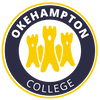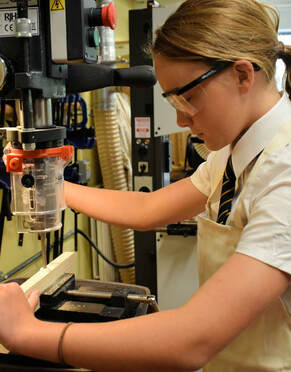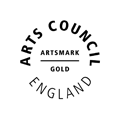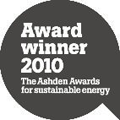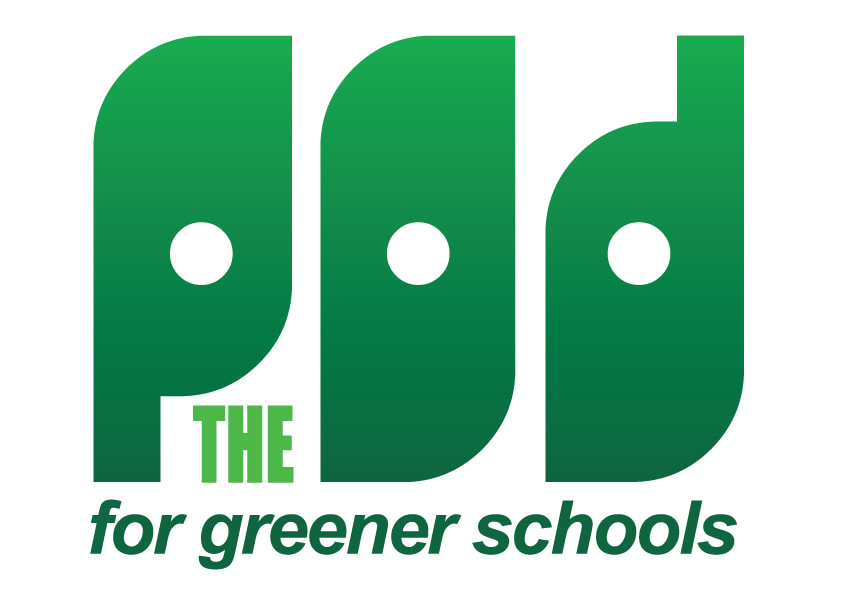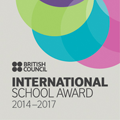Technology
Intent:
The Technology faculty aims to provide students with a high-quality technical education through a range of diverse subjects that include: Design and Technology, Engineering, Product Design, Food Preparation and Nutrition, and Catering.
Founded in the belief that such a broad range of subjects prepare students for life beyond college and provide vital support and balance to the curriculum, our vision is for every student to acquire the broadest possible range of knowledge and skills, so they can thrive in this rapidly changing world.
Our courses aim to foster creativity and independence while allowing students to develop specialist subject knowledge and a wide range of skills – some essential for healthy, functional living (e.g. food hygiene, planning and cooking healthy meals, using tools safely to undertake DIY at home, etc.). Throughout the key stages, students learn about and use a range of modern and traditional materials/ingredients, tools/equipment and production methods.
Students are often required to design, develop and make products that solve real-life problems, after carefully considering the design context and the user’s needs, wants, and values. Such activities further develop each student’s resilience, cultural awareness, and knowledge of the modern world.
The Technology faculty aims to provide students with a high-quality technical education through a range of diverse subjects that include: Design and Technology, Engineering, Product Design, Food Preparation and Nutrition, and Catering.
Founded in the belief that such a broad range of subjects prepare students for life beyond college and provide vital support and balance to the curriculum, our vision is for every student to acquire the broadest possible range of knowledge and skills, so they can thrive in this rapidly changing world.
Our courses aim to foster creativity and independence while allowing students to develop specialist subject knowledge and a wide range of skills – some essential for healthy, functional living (e.g. food hygiene, planning and cooking healthy meals, using tools safely to undertake DIY at home, etc.). Throughout the key stages, students learn about and use a range of modern and traditional materials/ingredients, tools/equipment and production methods.
Students are often required to design, develop and make products that solve real-life problems, after carefully considering the design context and the user’s needs, wants, and values. Such activities further develop each student’s resilience, cultural awareness, and knowledge of the modern world.
Our Curriculum
Our experienced team of specialist teachers have a wealth of complimentary knowledge and life experiences. Together we both reflect and look forward; continually refining our SoW in response to identified knowledge gaps, the needs of the curriculum and changes in society. We are strongly aware of our place within the college and the community we serve and strive to ensure our curriculum delivery is as relevant as possible to local industry and interests, whilst preparing students for life in a highly technical world.
Our schemes of work are designed and sequenced to allow students to develop their creativity, skills and subject knowledge, through a balance of practical and classroom-based activities within a wide range of specialist subjects such as Design and Technology, Engineering, Food Preparation and Nutrition and Catering. Over time, students develop their ability to independently solve problems, take considered design risks and safely make products using a range of modern and traditional materials/ingredients, tools/equipment and production methods.
These challenging and diverse subjects help equip students with the skills, knowledge, resilience and confidence necessary for them to lead healthy and functional lives whilst supporting their wider learning by providing opportunities for students to apply their knowledge of other subjects.
Our schemes of work are designed and sequenced to allow students to develop their creativity, skills and subject knowledge, through a balance of practical and classroom-based activities within a wide range of specialist subjects such as Design and Technology, Engineering, Food Preparation and Nutrition and Catering. Over time, students develop their ability to independently solve problems, take considered design risks and safely make products using a range of modern and traditional materials/ingredients, tools/equipment and production methods.
These challenging and diverse subjects help equip students with the skills, knowledge, resilience and confidence necessary for them to lead healthy and functional lives whilst supporting their wider learning by providing opportunities for students to apply their knowledge of other subjects.
Resources:
Students learn in a purpose-built and well-resourced environment which includes a specialist textiles room, ICT suite, multi-materials workshops, two domestic kitchens and a commercial catering kitchen. Students also benefit from using a Computer Aided Design and Manufacturing (CAD/CAM) suite equipped with a laser cutter, Computer Numerical Control (CNC) lathe, router and milling machine, and a fully equipped engineering workshop which contains a plasma cutter and an array of other industrial machine tools and equipment.
The combination of good resources and a dedicated team of specialist teachers gives every student the opportunity to excel.
Students learn in a purpose-built and well-resourced environment which includes a specialist textiles room, ICT suite, multi-materials workshops, two domestic kitchens and a commercial catering kitchen. Students also benefit from using a Computer Aided Design and Manufacturing (CAD/CAM) suite equipped with a laser cutter, Computer Numerical Control (CNC) lathe, router and milling machine, and a fully equipped engineering workshop which contains a plasma cutter and an array of other industrial machine tools and equipment.
The combination of good resources and a dedicated team of specialist teachers gives every student the opportunity to excel.
KS3 Curriculum Content
Key Stage 3 students study a range of modules that develop their designing and making skills, subject knowledge and confidence in a practical environment. An emphasis is placed on analytical, planning, independent problem solving and evaluative skills which are transferrable and help equip students for their GCSE studies across the college.
These modules are studied on a rotational basis. Classes are generally of a mixed ability and regular assessment is carried out during each module to identify student progress and areas for development.
These modules are studied on a rotational basis. Classes are generally of a mixed ability and regular assessment is carried out during each module to identify student progress and areas for development.
YEAR 7 & 8 - Termly Modules
Module |
Module content |
Core Design & Technology |
Students develop their teamworking and research skills as they learn about:
|
Design Communication |
Design Communication Students develop design communication skills used by designers and engineers. They also model product concepts using card, drawing equipment, and Computer Aided Design (CAD). |
Electronic Systems & Control |
Electronic Systems & Control Students develop practical skills and learn to apply theoretical knowledge to analyse and solve practical problems. |
Food & Nutrition |
Students develop practical cooking skills, learn about healthy eating and food hygiene. |
Resistant Materials |
Students develop hand and machine tool skills and learn to design and make timber-based products. |
Textiles |
Textiles Students develop their hand stitching and sewing machine skills and learn to apply details to a range of materials (including cotton and polyester) using fabric pens, crayons, paints and sublimation printing. Students also practise design and learn about seams and hems, product safety (children’s fastenings, etc.), embroidery, embellishment, applique, the use of Computer Aided Design and Manufacturing (CAD/CAM) within the textiles industry. Time-permitting they learn about types and sources of fibres, manufacture of fabrics, sustainability and recycling. |
YEAR 9 - Half-Termly Modules
Module |
Module content |
Catering |
Catering Students gain higher-level practical skills and a greater understanding of the hospitality and catering industry. |
Drawing Techniques |
Drawing Techniques Students develop their drawing skills by learning and practising a range of techniques, such as: 1- and 2-point perspective, orthographic projection, oblique drawing, scale drawing, 2D and 3D drawing, shading, rendering and free-hand sketching. |
Electronic Systems & Control |
Students develop a range of ICT skills and learn about circuit modelling (CAD), PIC programming, E-waste and sustainability. |
Food Preparation & Nutrition |
Students learn about staple foods and how they are used to produce dishes. Students also develop their knowledge of nutrients which is essential for healthy living and preparation for GCSE Food Preparation and Nutrition. |
Problem Solving |
Students work in pairs to independently design and make a solution to given problems (with minimal teacher input). |
Resistant Materials |
Students develop the skills and subject knowledge they learnt in Year 7 and 8 to design and fabricate a metal-based product. The skills and knowledge they learn may be directly applied to KS4 engineering courses. |
KS4 Curriculum Content
In Year 10 students can opt to study Design and Technology (including specialist areas of Electronics, Resistant Materials, Graphics and Textiles), Engineering, Food Science Nutrition or Hospitality and Catering.
YEAR 10
Subject |
Module content |
GCSE Design & Technology |
This course allows students to apply the iterative design process and their understanding of materials and manufacturing processes to design and make prototypes in response to issues, needs, problems and opportunities. This requires students to be creative and imaginative and provides opportunities for them to apply knowledge from other disciplines, including mathematics, science, art, computing and humanities. Students are encouraged to take design risks to help them become resourceful, innovative and enterprising citizens, who understand how Design and Technology impacts daily life and its importance to the wealth and wellbeing of the nation and global community. In Year 10, students focus on developing their subject knowledge and design skills in preparation for the coursework and exam in Year 11. FULL COURSE DETAILS |
Cambridge National Certificate in Engineering Design |
This course is aimed at students who wish to study the processes involved in designing engineered products. Cambridge Nationals are vocationally related qualifications that take an engaging, practical and inspiring approach to learning and assessment. In Year 10, students complete one piece of internally assessed coursework (R039). Towards the end of Year 10, students will commence the second and final piece of internally assessed coursework (R040). Students will complete R040 during Year 11 and prepare for the externally assessed exam (R038) in the summer term. R039: Communicating designs Students learn how to develop a range of techniques in freehand sketching, in 2D and 3D, for a given specification. They will produce technical drawings using drawing boards and/or using CAD software called Techsoft 2DDesign. Finally, students will create formal presentation design proposals using CAD 3D drawing software called Creo 5.0.4.0 FULL COURSE DETAILS |
NCFE Level 1/2 Technical Award in Engineering |
This vocational course allows students to explore many aspects of engineering, providing insight into engineering careers. It also aims to equip students with practical skills so they can safely use a wide range of tools and materials - useful for everyday life, an apprenticeship or further education. Year 10 students develop their subject knowledge and practical skills by completing a range of projects and written tasks. FULL COURSE DETAILS |
GCSE Food Preparation & Nutrition |
Students gain experience of using a range of cooking techniques and equipment as they learn to plan, prepare, and cook a variety of British and international dishes safely and effectively. FULL COURSE DETAILS |
Level 1/2 Vocational Award Hospitality and Catering (Technical Award) - Teaching from 2022 |
Students develop their practical skills as they learn to make pasta, pastry, and sauces, etc. They also learn about health and safety, how food can cause ill health, and how hospitality and catering provisions operate and meet customer requirements. FULL COURSE DETAILS |
YEAR 11
Subject |
Module content |
GCSE Design & Technology |
Students complete the controlled assessment task, worth 50% of the qualification, before preparing to sit the exam in the summer term (also worth 50%). FULL COURSE DETAIL |
Cambridge National Certificate in Engineering Design |
Following on from Year 10, students will complete two pieces of internally assessed coursework R107 and R108. R107: Developing and presenting engineering designs. Students generate design proposals using a range of techniques. They learn how to develop designs using engineering drawing techniques and annotation and be able to use Computer Aided Design (CAD) software and techniques to produce and communicate design proposals. R108: 3D design realisation Students learn how to plan the making of a prototype and how to apply safe working practices when making it. They manufacture their own prototype and learn how to evaluate the success of their product. FULL COURSE DETAILS |
NCFE Level 1/2 Technical Award in Engineering |
Students prepare to resit the unit 1 exam (worth 40%) in the autumn term. This is an excellent opportunity for students to improve their grade as only their best mark (from either unit 1 exam) counts towards their qualification. Students also complete an externally set controlled assessment, worth 60% of the qualification. FULL COURSE DETAILS |
GCSE Food Preparation & Nutrition |
Students complete two controlled assessment tasks, worth 50% of the qualification, before preparing to sit the exam in the summer term (also worth 50%). FULL COURSE DETAILS |
Level 1/2 Hospitality & Catering |
Students complete their unit 2 controlled assessment, worth 60% of the qualification, which focuses on the importance of nutrition when planning menus, understanding menu planning and being able to cook dishes using a variety of preparation and cooking techniques. If necessary, students prepare to resit the unit 1 exam (worth 40%) in the summer term. This is an excellent opportunity for students to improve their grade as only their best mark (from either unit 1 exam) counts towards their qualification. FULL COURSE DETAILS |
KS5 Curriculum Content
In KS5 students can opt to study the two year course of A-Level Design and Technology - Product Design (2017).
Year 12 and 13
Subject |
Module content |
A-Level Design and Technology – Product Design |
Design & Technology Product Design, allows students to explore CAD modelling, drawing and presentation techniques and has an integral 3D element involving model making and use of workshop machinery. Year 12 Students explore Product Design, through short coursework projects and theoretical knowledge. Topics covered during the Product Design coursework include iterative design, technical illustration and high-level design sketching, with a focus on industrial and commercial practices to understand materials and manufacturing techniques. The use of Computer Aided Design (CAD) software is included in the course, alongside more traditional skills such as rendering, marker pen work and presentation. 3D modelling is integrated with 2D graphic techniques to provide students with outstanding skills. Integral to the course is the iterative design process. Students are encouraged to become independent learners and gain an understanding of and simulate the work of professional designers in their project work. Year 13 Students apply their knowledge and design skills to complete (by Easter) their coursework which requires students to design and build a quality prototype. Students then undertake an intensive programme of activities to help them prepare thoroughly for their summer examinations. FULL COURSE DETAILS |
Level 3 Diploma in Food Science and Nutrition |
Year 12 Students complete one mandatory unit titled Meeting Nutritional Needs of Specific Groups. This is externally assessed by exam in the summer term, and internally assessed by coursework, which includes practical work. Year 13 Students complete a second mandatory unit called Ensuring Food is Safe to Eat which is supported by classwork but assessed entirely by an online external assessment in the summer term. Students then complete a third unit, a choice between Experimenting to Solve Food Production Problems or Current Issues in Food Science and Nutrition – either module is assessed entirely by coursework. Note: In total, the coursework is worth 50% of the qualification. FULL COURSE DETAILS |
